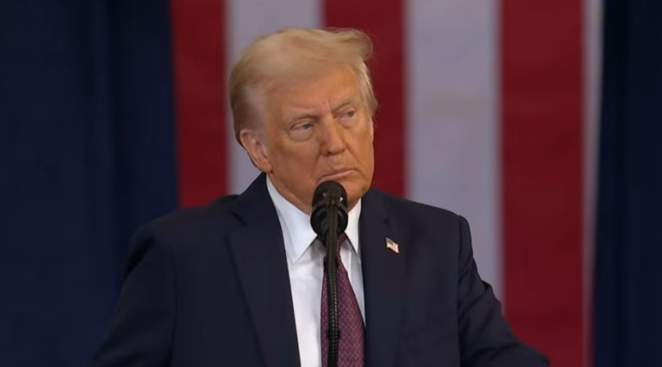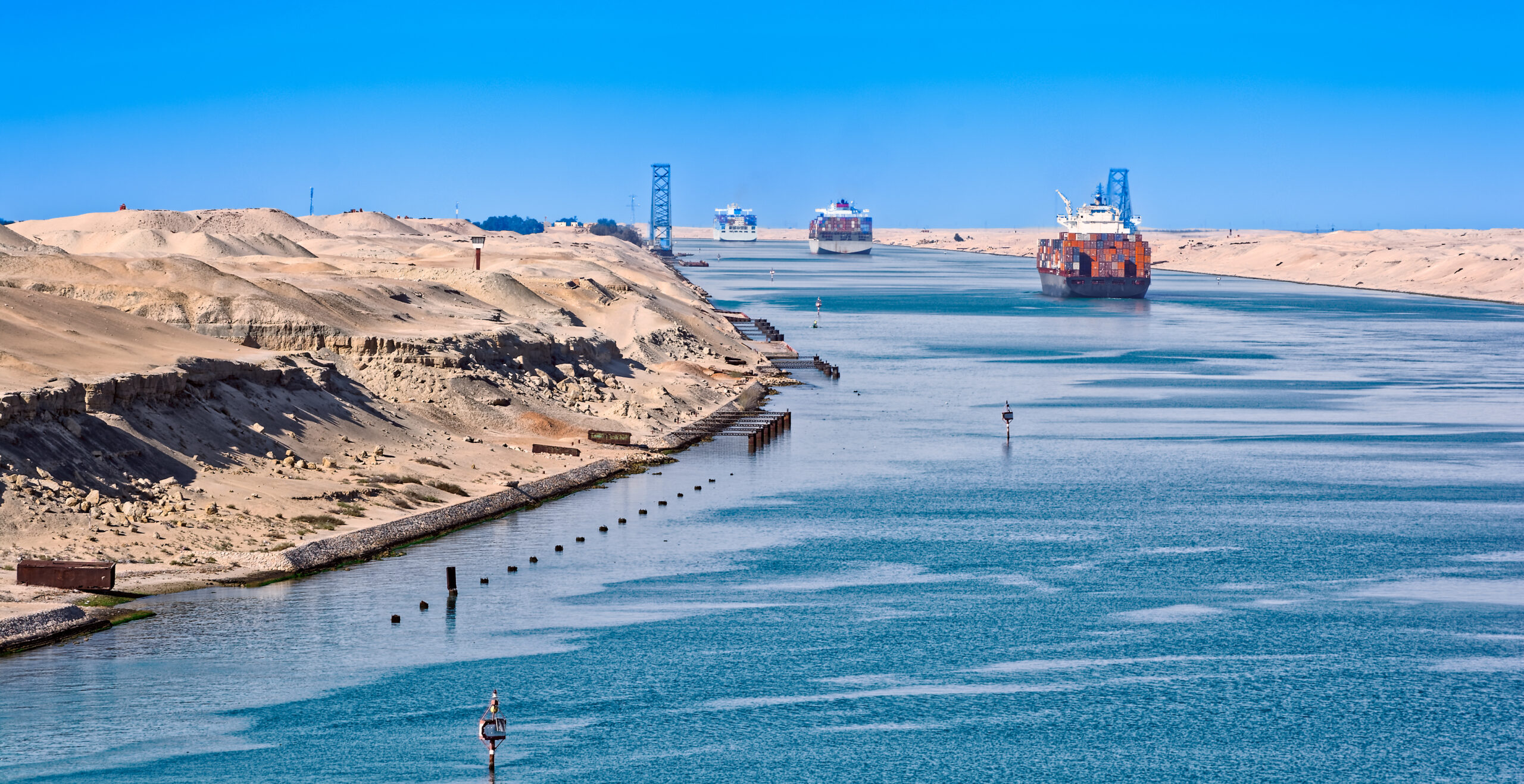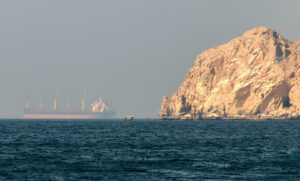
Image: Donald Trump presidential inauguration address. Screenshot from the speech.
U.S. President Donald Trump said on Saturday that American military and commercial ships should be allowed to travel through the Panama and Suez Canals “free of charge.”
In a recent post on Truth Social, Trump instructed Secretary of State Marco Rubio to address this issue “immediately.”
“American Ships, both Military and Commercial, should be allowed to travel, free of charge, through the Panama and Suez Canals! Those Canals would not exist without the United States of America. I’ve asked Secretary of State Marco Rubio to immediately take care of, and memorialize, this situation,” Trump wrote in a Saturday post on Truth Social.
In addition to the Panama Canal, Trump’s statements have now extended to the Suez Canal, a critical route for global maritime trade that has faced disruptions the last two years.
The canal saw a decrease in the shipping volume as the Yemeni Houthis attacked ships passing through it in 2023 and 2024.
On the other hand, the Panama Canal has been a source of concern for Trump and his administration, who see China as having a “growing influence in the region.”
During a visit to Panama in early April, US Defense Secretary Pete Hegseth stressed that it has secured ‘First and Free’ canal passage for US military vessels, in adherence to the Treaty Concerning the Permanent Neutrality and Operation of the Panama Canal.
In the same visit, Hegseth announced that Panama and the United States have agreed to reestablish and enhance joint US-Panama military training centers and security force cooperation.
In a press release posted recently on X, the Panama Canal Authority confirmed that both sides signed a joint declaration that reaffirms Panamanian sovereignty and outlines new cooperation.
The deal “reaffirms respect for, and the recognition of, Panamanian sovereignty over the interoceanic waterway,” the Canal Authority stated.
“The era of capitulating to coercion by the communist Chinese is over,” Hegseth said while delivering his remarks.
“[China’s] growing and adversarial control of strategic land and critical infrastructure in this hemisphere cannot and will not stand,” he added.
Despite the growing cooperation, Panamanian President José Raúl Mulino has publicly denied that China controls the canal.
Hegseth, who has been recently in Panama City for a three-day security conference with the host nation, made the expanded partnership announcement during a joint press conference with Panamanian Public Security Minister Frank Abrego.
“The Panama Canal is key terrain that must be secured by Panama, with America, and not China,” Hegseth said.
He added that, just prior to the news conference, the U.S. and Panama signed a memorandum of understanding related to cooperative security activities in the region and that the signing of an additional declaration related to the security and operation of the Panama Canal would be forthcoming.
That declaration, Hegseth said, would provide a framework for U.S. warships and auxiliary ships to travel “first and free” through the canal.
“These documents reaffirm [the U.S. and Panama’s] historic ties and outline how we will deepen our relationship and strengthen bilateral canal security cooperation,” Hegseth said.
He added that the signed MOU would pave the way for an increased level of joint training exercises between the two countries and improve overall interoperability between both nations’ military forces by reestablishing a rotational joint presence at a handful of previously operational U.S. military installations.
Hegseth highlighted that the expanded security relationship between the two countries would also include information sharing, enhanced cyber cooperation, bilateral security dialogues and canal infrastructure improvements.
When asked whether the U.S. still recognizes Panama’s sovereignty over the canal, Hegseth said that protecting Panamanian sovereignty from maligned influences in the region is essential.
“When President [Donald J.] Trump says, ‘We’re taking back the Panama Canal from Chinese influence,’ that involves partnership with the United States,” Hegseth noted, adding that the U.S. is grateful that Panama has welcomed American troops onto Panamanian soil through the joint rotational exercise invitation.
“And that’s what you’ll see in the memorandum of understanding: it’s an opportunity to revive … locations where U.S. troops can work with Panamanian troops to enhance capabilities and cooperate in a rotational way,” he added.



